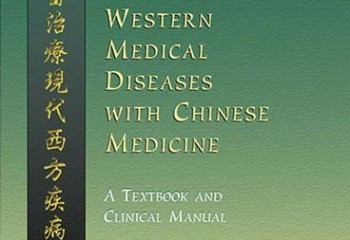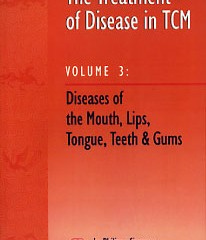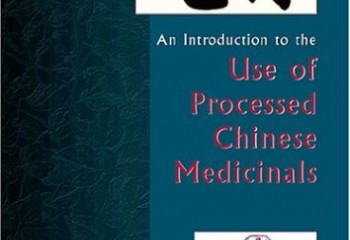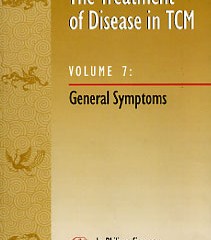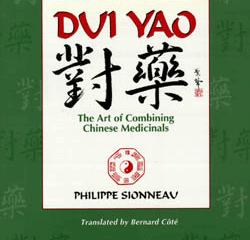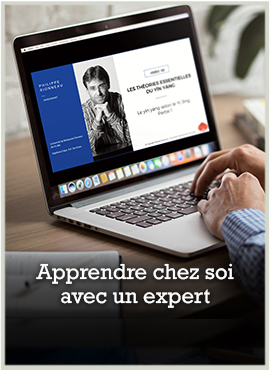An Interview with Philippe Sionneau By Yael Ernst (Israel)
Dans Interview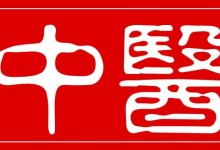 Philippe Sionneau is not a well known name here in Israel.
Philippe Sionneau is not a well known name here in Israel.
If practitioners know him, it's mainly for his books, but that's about it.
A few years ago I thought that having an interview with him would be a good way to get to know him, and indeed we exchanged e-mails, in which he appeared very kind and generous in sharing his ideas about Chinese Medicine. I don't know how well known he is abroad, I hope you will find this interview with him interesting enough to read and also give his books a chance to impress you- if they still haven't.
Phillippe Sionneau is a French practitioner. He was born in 1967, in France. He received his B.A in Economics in 1983 and on 1986 he received a diploma in naturopathy from the R. Masson Institute. In 1994 Sionneau finished his studies at Hubei College of Chinese Medicine, in Wuhan in China and received his B.Sc degree. This year also marked the beginning of his clinical work in various clinics in Paris, Geneva and Barcelona.
Over time, Sionneau became a well known practitioner in Europe, teaching across Europe- mainly France, Spain , Switzerland and also USA, Canada, Italia… Over the years, Sionneau wrote about 20 books, some of them on his own and some along with Bob Flaws and Lu Gang. In the end of this post I will present a few of his books.
This interview took place in 2004, I found Sionneau busy but he wrote me back and appeared to be very kind with many smilies and a real passion for Chinese Medicine.
You started with studying economy. Then studied naturopathy. Then you studied Chinese Medicine. How does one start with economy and gets to Chinese Medicine (CM)? How did that happen?
As many "good child" I did the study that my parents expected for me. Then with more maturity I moved toward my true passion: medicine, but not western medicine, but "alternative" medicine. Very young I was interesting in how to eat healthy, how to treat diseases with a natural way, etc. I started by European approach of alternative medicine, as naturopathy, aromatherapy…
How did you "meet up" with Chinese medicine? How did you decide to study that field?
I was, and I am still an enquiring mind. I was unsatisfied with the naturopathy, because there is no real global approach of human being, it is not a medical system with is own physiology, etiology, diagnosis, etc. In fact, it is more a compilation of recipes. When I meet Chinese Medicine I fell in love with it, because it is a complete medical system. You can explain totally life and diseases with this matrix of thinking… So, for me immediately it was obvious that Chinese Medicine will be my tool to study the complexity of human being…
And why did you choose China over so many other schools in Europe and USA?
In my time, I didn't know USA and the school in France was (and often still continue) very bad. The teachers do not understand Chinese (it is like teach mathematic without knowing the numerals), their knowledge was very narrow and strictly on acupuncture, the pedagogic very confuse, their knowledge of the Classic non-existent, so… It was terrible. But I met a Chinese Doctor who is living in USA now, who explains me that to learn Chinese medicine I had no more choice to go in China, the source… So he helps me to go there and I study in a college of Chinese medicine.
Which aspect of Chinese Medicine is closer to your heart and use more in your practice- acupuncture, Chinese herbs or Tui-Na? Do you see Shiatsu as part of Chinese Medicine?
Shiatsu is a very interesting method, but it belongs to Japanese medicine not Chinese medicine. In my practice I use commonly Chinese herbs, Chinese diet, Chinese massage and acupuncture. I see many different kind of patient that need different way of healing.
Do you use your naturopathy knowledge in your practice?
Not at all. It is hard be a good practitioner if you use numerous method. My opinion is you should first master in deep a system before use another. And I do not master Chinese Medicine. I should work more in clinic and research…
Do you find that naturopathy is good to mix that with Chinese Medicine?
No.
Where do you think they are similar and where do you think they are different?
It's a very complex debate! The difference between naturopathy and Chinese Medicine, it is the same difference between the mechanistic approach of the life by westerners, and global and natural approach of the life by ancient Chinese. The point of view in the West and naturopathy depend on science, on what we can see, measure, weigh, etc. In Chinese Medicine we talk often about subtle and invisible things like Qi, Yin, Yang, five movements, etc. The west is the world of the palpable, ancient China is the world of impalpable, intangible… So the medical expression of these two worlds is of course very different. I give you an example, the naturopathy says: we must eat crude vegetable because there are more nutriments in the crude vegetable than the cooked one when we measure them… Chinese Medicine says: be careful the "Qi" inside the crude vegetable are often colder, and more difficult to transform, then they can damage the spleen Qi, so your health… even if they are richer in nutriments…
I have read that you practice different techniques of Qi Gong. How do you find it to be helpful in your practice- for you and your patients?
I practiced Qi Gong, but I have no more time in my schedule to practice, I have too much children and patient for that J I know, it is bad for my health!
How do you approach problems such as eating disorders and sexual trauma? Since there aren't any references in Chinese texts (at least as far as I've been told) to these kinds of problems, things are pretty open to individual theories…
What do you call "eating disorders" and "sexual trauma": give me more details, I don't understand.
How do you feel about combining between Chinese Medicine and Western Medicine, such as psychology and other fields?
The combination between Chinese Medicine and Western Medicine is the future of medicine. In some field the combination is very powerful, or at least better than the two medicine separated. In China we say that there are three medical way: 1- Western Medicine, 2- Chinese Medicine and 3- the combination of both. I hope the combination and collaboration between these two worlds will be more and more developed for the aim to help better our patients.
What 3 things, in your opinion, a practitioner of Chinese Medicine needs to do as he/she starts his/hers practice? What advice can you give to those of us who struggle with our practice? How can we become better healers once we finish our basic 4 years?
I suggest three things:
1- Love your job and do not stop to study. The continuing education is very important, especially in Chinese Medicine which is an Ocean.
2- Have an active practice: think about why you do that or that, then examine the result. It is good: why? It is bad: why? Analyze the consequences of your action, and try to increase your competence. Then memorize the result, and do not make the same error two times.
3- Work, work and work, being dedicated to your patient. We are better doctor after 30 years experiences…
What is, or are, your favorite things about CM?
I love many things in Chinese Medicine, so it is difficult to select. But, I am impressed by the knowledge and wisdom of the classics.
I have a summary of a course you held back in August 2002, where you talked about the psycho-emotional effect points have. Was it here in Israel? If so, how did you find the level of Chinese Medicine in Israel? What do we still need to learn?
I taught this topic in New York, San Diego, Barcelona and Paris. It is not my point of view on the subject, but the point of view of the Classics of acupuncture on how to treat psycho-emotional disorders with acupuncture. I don't know exactly the level in Israel, but I suppose it is the same than USA.
What is the best part of teaching for you? Why did you start teaching?
I taught by accident! Since, I never stop because students ask me to continue… Finally, I teach because it is a good way to continue my own education! I think the main problem in West is that our understanding of Chinese Medicine is too superficial because we continue to learn Chinese Medicine with our Western mind. Learn and practice Chinese Medicine it is first "THINK" like Chinese Medicine, according is system of thinking.
Are there any aspects where Western Chinese Medicine is better than the Chinese Medicine in China?
Yes! There is heater in the classroom J When I was student in Wu Han (China) there was not heater in winter in the classroom, in the bedroom, in the refectory, nowhere, because it was forbidden. It was terrible!
